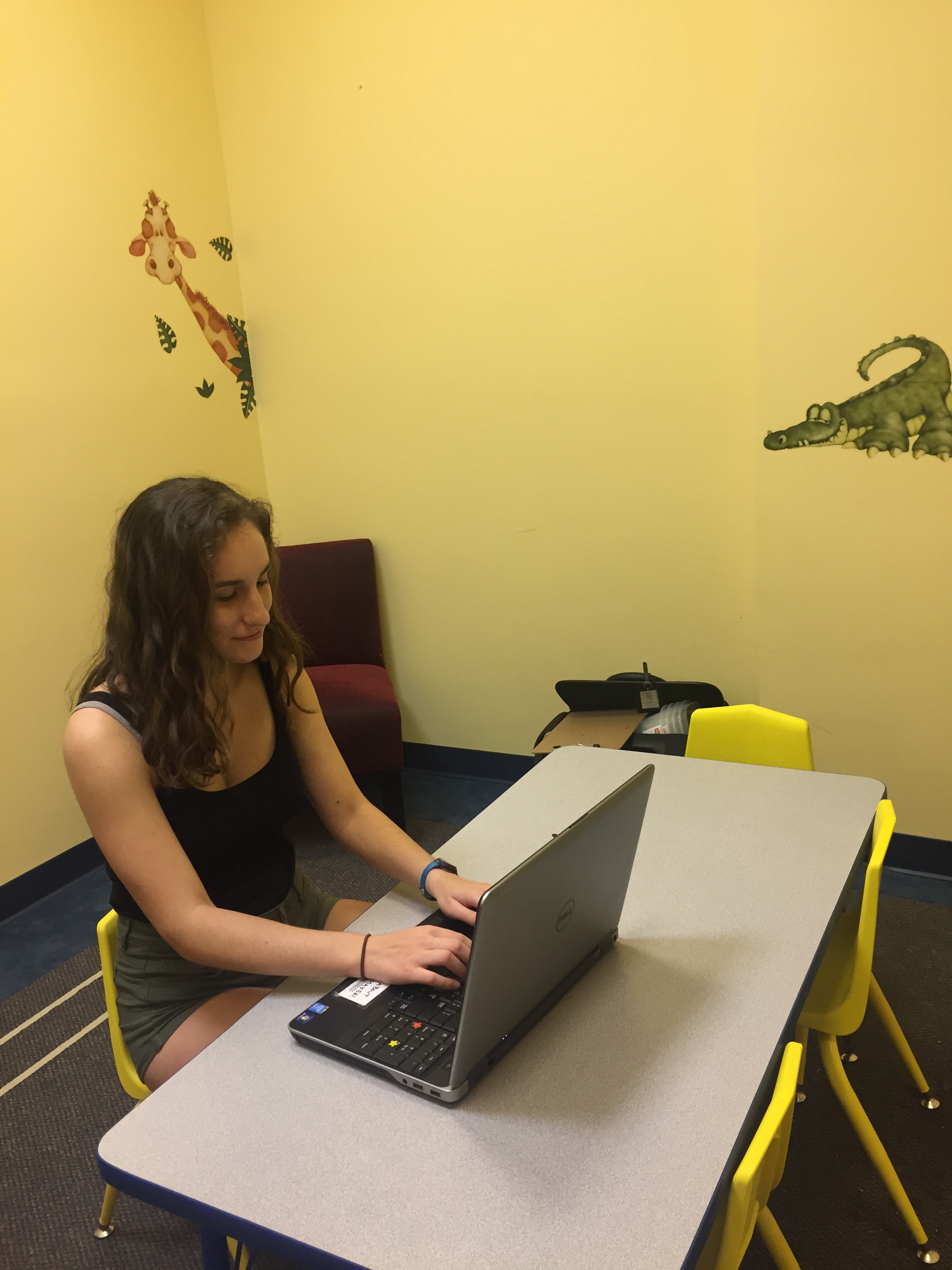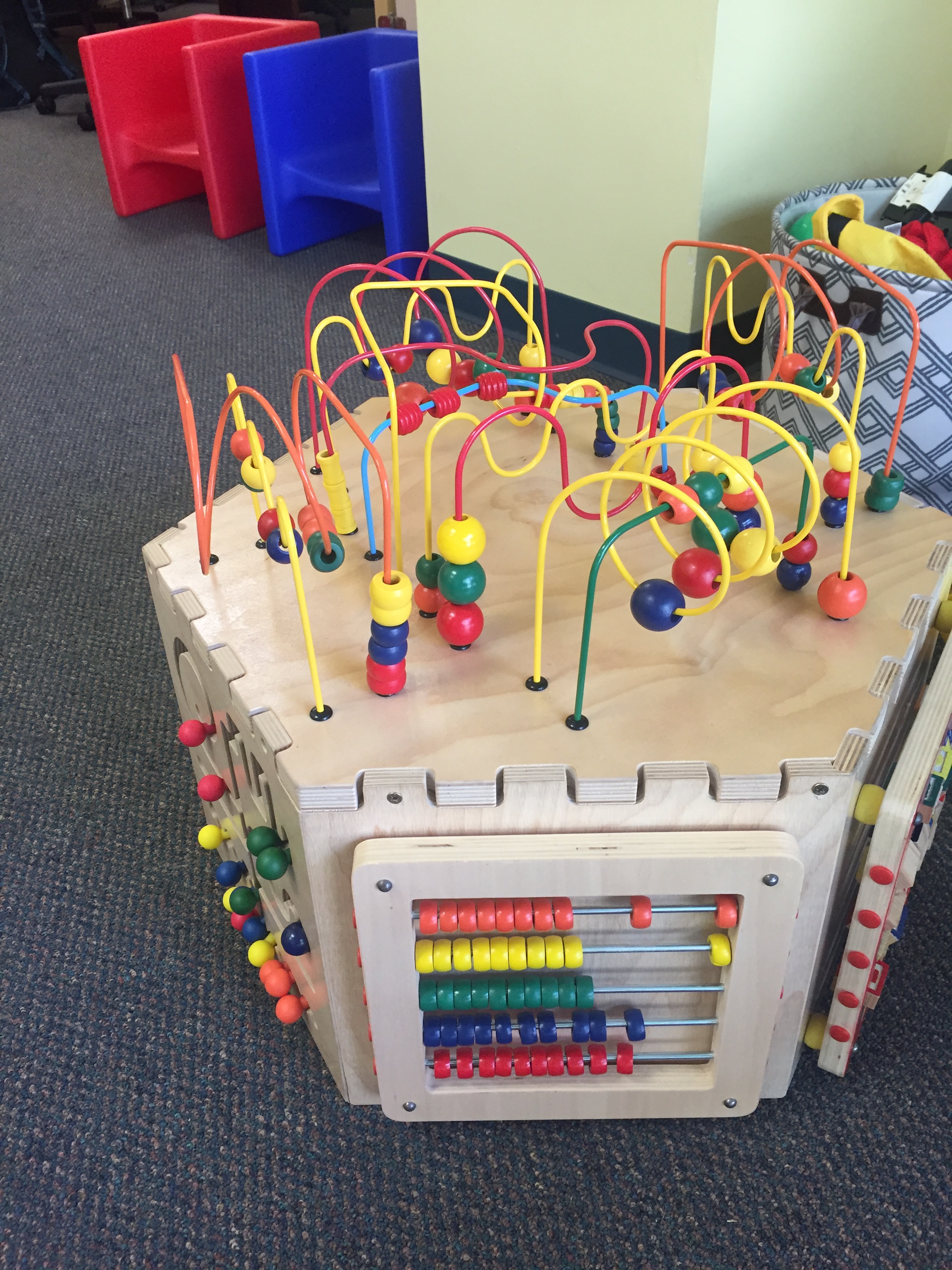As my research this summer is shortly coming to a close, I cannot believe that the past few months have gone by so quickly. Since my last blog post, I have taken on more responsibility in the lab. I am still doing a fair amount of transcribing interviews and data entry, but I have also been working more on the DotProbe data (which I will discuss later on) and a literature review. One of the main goals of the lab for the future is to examine parents’ behaviors and goals when parenting children in contexts of high violence in order to develop a substantive theory on the relationship between context, culture, violence, and parenting goals and behaviors in early childhood to guide future research. However, at this point, we do not have a method to quantify parenting goals in terms of the characterization of parenting goals, as well as a coding scheme. This is where I come in. For the past few weeks, I have been combing Howie T and Google Scholar for any reference to testing the effects of parenting goals. For each study, I have compiled the demographics of the participants, the procedure, the results, and how parenting goals are woven throughout the study in order to see if the studies relate to ours, and how we can use their methodologies. Eventually, my findings will likely be consolidated into a literature review for a manuscript, but that may be a long way away. Currently, though, I have enjoyed reading through articles to see how other researchers perform their studies, as well as their significant results. My knowledge of how research is done has increased greatly with this small project, a skill which, in fact, was included in my original learning objectives.
As the summer has progressed, I have been involved in different projects than I originally had thought; therefore, my defined learning goals have shifted. The goals I set for myself at first are as follows:
- First of all, I want to learn the process of speaking with at-risk families and children about their experiences. If I am going to be working with families who have experienced trauma for the rest of my life, as I plan to do, I want to get a head start on discussing sensitive material with at-risk children and their parents.
- Secondly, I want to become more familiar with how to conduct research, which will be an invaluable skill I can utilize in writing my Honors thesis. This can be done by observing and shadowing the graduate students in the lab, as well as asking questions of my P.I.
- Similarly, I want to learn how to analyze data more effectively, whether it be coded data from interviews or self-reported surveys, or physiological data from electrodes.
- Additionally, I hope to gain more practice in statistical analysis, which will help me in my own, future research.
- Finally, I hope to expand my perspective on the social climate of New Orleans. Through listening to the stories of the participants, I will be exposed to behavioral challenges, and their socioeconomic and cultural roots.
While I ended up not taking part in any recruitment aspects of the lab, thus not allowing me to first-handedly experience speaking with at-risk families and children about their experiences, I still gained insight on this topic while listening to the interviews done by our grad students. However, just by being in the lab for many hours a week and exposed to data analysis and the graduate students’ work, I have gained many insights and skills into how one analyzes data effectively, statistical analysis, and how to conduct research in general.
Even though I did not take on the projects that I expected, I have still been able to take on more this summer in the lab. Through this, as well as reading articles both for the lit review and our weekly lab meetings, I have become more well-versed in the subject of psychology. One of the highlights of my week is our lab meeting, where we discuss a previously chosen article for around half an hour to 45 minutes. This has given me a chance to expand my knowledge of psychology in general, as well as delve deeper into the themes that we incorporate into our lab, such as emotion regulation, attachment theory, biosynchrony, and stress response systems.
Throughout the summer, I have been working with data from the DotProbe (see picture!), a task designed to test selective attention to visual stimuli (if you want to know more, check out my last blog post: https://wordpress.com/post/newcombcollegeinstitute.wordpress.com/5109P). Thus far, I have entered around 100 participants’ test results. After Elsa, the grad student with whom I’m working, looks over the data and speaks with her colleagues about it, our next  step is to convert the Excel spreadsheet of data into an SPSS table so that we can look at some of the data and analyze it. This will involve factoring out unusable data and seeing what we’re left with. If all goes well and we have usable data, myself and Elsa might create a poster to present our findings, which, as an undergraduate, would be a huge accomplishment for me.
step is to convert the Excel spreadsheet of data into an SPSS table so that we can look at some of the data and analyze it. This will involve factoring out unusable data and seeing what we’re left with. If all goes well and we have usable data, myself and Elsa might create a poster to present our findings, which, as an undergraduate, would be a huge accomplishment for me.
The lab consists predominantly of females, including our principal investigator, who have all provided me with a great model of female leadership. They approach everything with strength, power, and a curiosity for knowledge, and this has inspired me both in the lab and in my academic studies. Additionally, it has been humbling to able to see these women excel in a scientific field, be able to eloquently and poignantly discuss issues regarding our research, as well as tackle the everyday challenges of life. As a female majoring in science, who plans on going into a male-dominated field, having examples of success in my life now is empowering. Moreover, the women with whom we work are prime figures of female leaders as well. Despite most of them having gone through traumatic experiences, they have been able to start a new life for themselves—many of them have careers, families, and more. Not to mention they can take time out of their busy lives to come help us do research. I have been humbled working with these women, seeing what they have gone through, and more importantly, what they have overcome.
In addition to finding my stride as a female leader, I have been gaining skills that I can apply to my academic studies. Through conducting research and having discussions about scientific topics, this research has allowed me to learn psychology in a contextualized, real-world setting, which will enhance my education. Additionally, I have been able to babysit for the mothers while they are participating in our study. Playing with these kids has not only been fun, but also has confirmed for me that I probably want to go into a medical specialty of either Pediatrics or Obstetrics/Gynecology. Even though I do not want to go into research for my career path, studying psychology now will give me invaluable knowledge and skills into the roles of development, the mind, and relationships as I progress in my education.
contextualized, real-world setting, which will enhance my education. Additionally, I have been able to babysit for the mothers while they are participating in our study. Playing with these kids has not only been fun, but also has confirmed for me that I probably want to go into a medical specialty of either Pediatrics or Obstetrics/Gynecology. Even though I do not want to go into research for my career path, studying psychology now will give me invaluable knowledge and skills into the roles of development, the mind, and relationships as I progress in my education.
